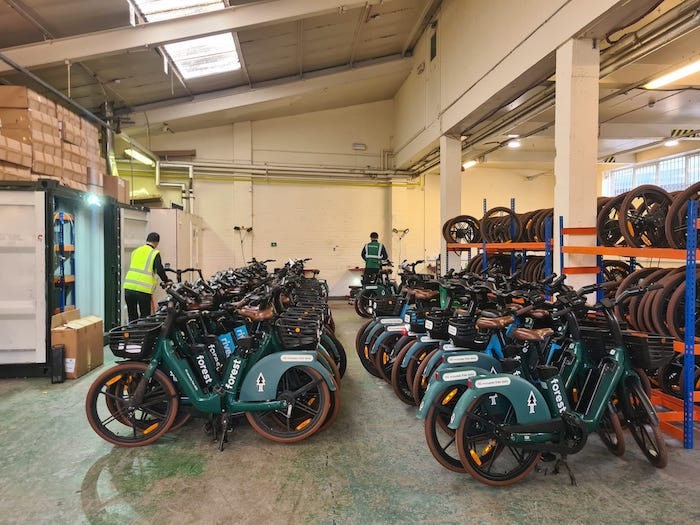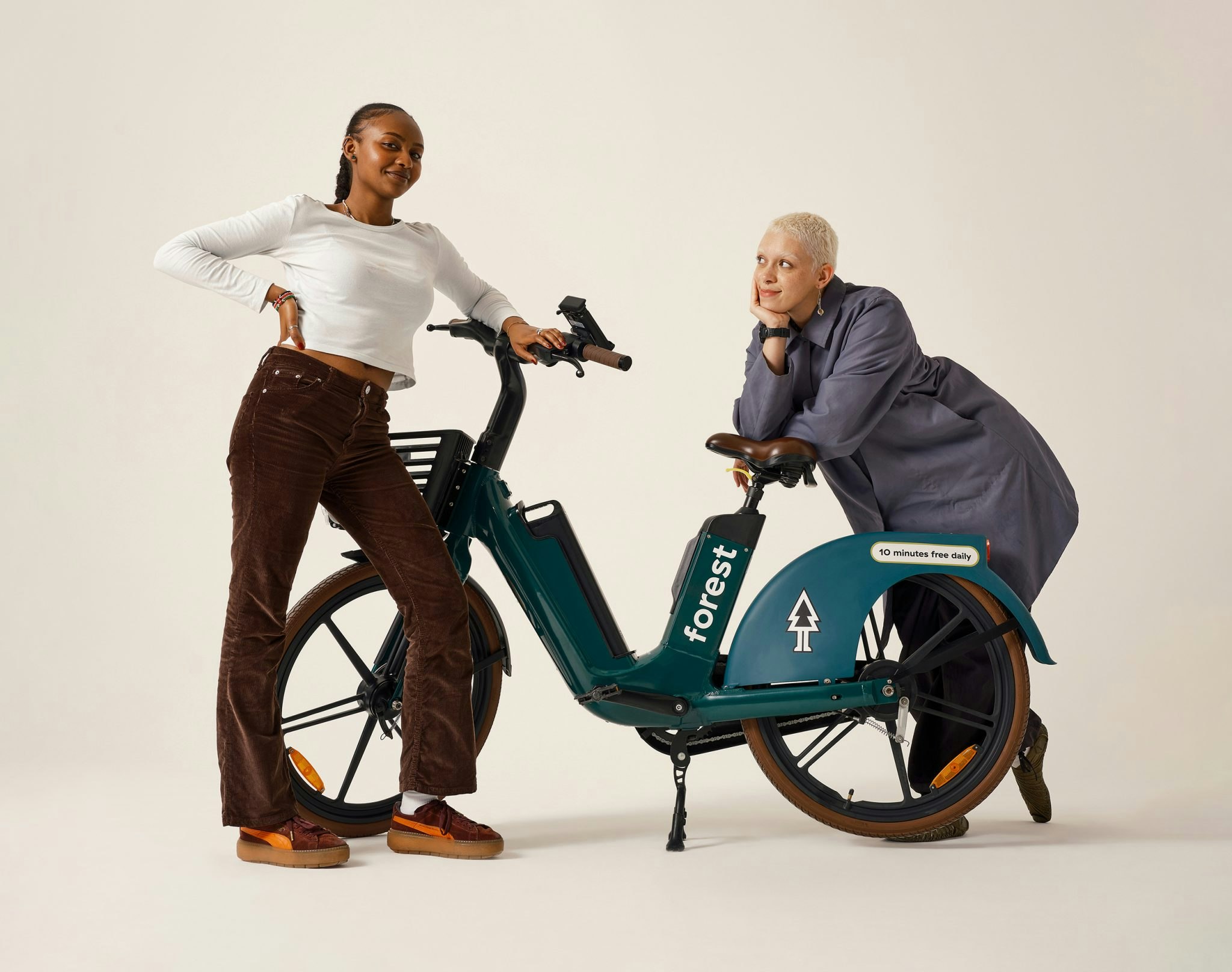In a warehouse just south of the River Thames, a team of mechanics swiftly repairs dozens of e-bikes. Music pumps in the background as they seamlessly diagnose faults and replace broken wheels, seats and brakes.
The e-bikes belong to London-based startup Forest, and the slick operation has helped it achieve something that has eluded most micromobility companies: profitability.
The last few years have seen e-bike and scooter giants like Tier, Voi and Bird make significant cuts to their workforces. The industry has also faced headwinds from regulators — culminating in the ban of e-scooters in Paris earlier this year.
Forest — which was launched in 2020 by former executives from ride hailing startup Cabify — is significantly smaller than many micromobility startups. It’s only active in London, where it has around 10k bikes and half a million users.
But expansion across Europe is on the cards: Forest raised a £12m Series A round in April this year and is today announcing it has extended the round by another £5.5m. Backers include Güil Mobility Ventures and Fen Ventures.
Making a profit
Forest broke even in the summer, meaning it was profitable across everything except the cost of deploying new bikes. That deployment ends this month, so from here on, the company is EBITDA positive overall.

“The big thing here is that we were able to prove our business model,” says Jose Eluchans, CFO of Forest. “We are able to become a self-sustaining business.”
Profitable micromobility startups are rare beasts. American startup Lime, which also operates in Europe, reported earlier this year that it had reached a positive EBITDA of $4m for 2022.
None of the larger players in Europe have reached the milestone. Estonian micromobility and ride hailing startup Bolt posted a €72m loss in 2022, but says it’s aiming for profitability next year.
Swedish startup Voi reported “market level” positive EBITDA in 2022 — meaning its on the ground operations made a profit in individual markets, but the company as a whole did not, once headquarter costs were factored in. Voi has said its goal for 2023 is to hit company-wide profitability.
Subsidising rides through adtech
Central to Forest’s financial stability is its advertising revenue model, Eluchans says. It subsidises the cost of rides using revenue generated from advertising on its app, which users must open to start a journey. Customers can watch videos to earn free minutes of riding, and ads also appear at the start and end of rides in the app.
Uber has started to integrate advertising into its app, but there are no other micromobility companies using the model.
The adverts Forest runs tend to be sustainability-focused consumer products, like Wild deodorant, along with companies like UPS, the Financial Times and Whole Foods. It also runs free ads for partners like Greenpeace and homelessness charity Shelter.

“We have learnt from the legacy players”
Eluchans says Forest has also worked to streamline its operations.
“We think of ourselves as a second generation mobility company. We have learnt from the legacy players,” he says (the first cohort of bike and scooter companies launched in the mid 2010s, a few years before Forest). “There were a lot of mistakes made and now we learned from that, and we have found this winning formula with a super optimised operation plus additional revenue streams.”
Forest says the cost of each battery swap (when a bike's battery is replaced with a fully charged one) is two times lower than industry standard. It says it’s cut the cost by incentivising riders to park in particular places by offering free ride minutes, so drivers can pick up batteries from multiple bikes at once.
The company has also developed a strategy to repair broken bikes on the roadside, meaning bikes can get back into service more quickly, and Forest can reduce the size of (and therefore cost associated with) its repair shop. Forest is working on re-using parts from old bikes to repair new ones, further cutting the cost of components.
Forest’s next challenge is to maintain profitability across the colder months (e-bike rental is a seasonal industry, with higher uptake during the summer months) and to ensure the operation works when it’s replicated in other cities — most likely other European capitals.


